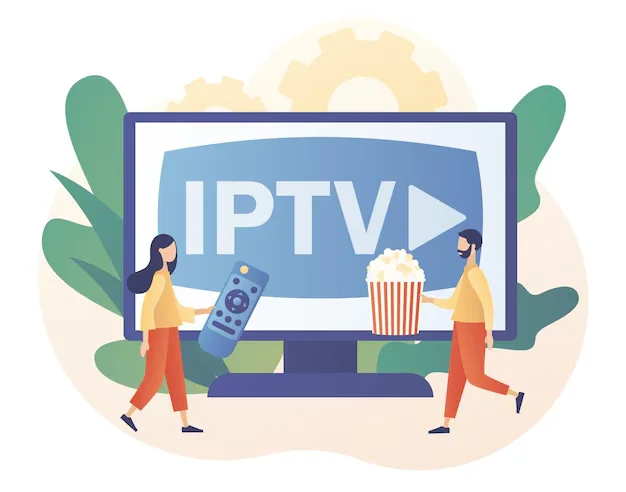IPTV Cloud Storage: The Ultimate Guide to Enhanced Streaming Experience
The world of entertainment has undergone a remarkable transformation in recent years, with Internet Protocol Television (IPTV) emerging as a game-changer for viewers worldwide. But what happens when you combine the power of IPTV with cloud storage capabilities? You get a revolutionary streaming experience that’s changing how we consume media forever.
IPTV cloud storage represents the next evolution in digital entertainment, offering unprecedented flexibility, reliability, and convenience for viewers. Instead of being tied to local storage constraints or traditional broadcasting schedules, cloud-based IPTV solutions provide on-demand access to vast content libraries from anywhere with an internet connection.
![]()
Have you ever wondered how some IPTV services seem to offer endless content without buffering issues? Or perhaps you’re curious about how to maximize your viewing experience across multiple devices? In this comprehensive guide, we’ll explore everything you need to know about IPTV cloud storage, from its fundamental principles to advanced setup techniques and future trends.
What Is IPTV Cloud Storage and How Does It Work?
IPTV cloud storage refers to the technology that allows television content to be stored on remote servers rather than on local devices. But how exactly does this work? Unlike traditional TV broadcasting that sends signals to all viewers simultaneously, IPTV cloud storage maintains content on centralized servers, delivering it only when requested by individual users.
The process begins when content providers upload their media to cloud servers. These files are then encoded and optimized for streaming across various devices and internet speeds. When you, as a viewer, select a program through your IPTV service, the system retrieves that content from the cloud and streams it directly to your device.
What makes cloud-based IPTV particularly powerful is its ability to handle massive content libraries without requiring users to have substantial storage capacity on their own devices. Think about it – instead of downloading gigabytes of video files to your personal hard drive, you can access thousands of hours of content stored remotely, saving valuable space on your devices.

Is cloud storage really necessary for IPTV? Absolutely. Without cloud infrastructure, IPTV providers would struggle to offer the vast libraries of on-demand content that make their services so appealing. Cloud storage enables features like time-shifted viewing, catch-up TV, and extensive video-on-demand libraries that have become standard expectations for modern viewers.
The technical architecture typically involves content delivery networks (CDNs) strategically positioned around the world to minimize latency and ensure smooth streaming regardless of your location. This distributed approach means you can enjoy high-definition content with minimal buffering, even during peak usage times when millions of other viewers might be streaming simultaneously.
Benefits of Cloud Storage for IPTV Users
Why should you care about cloud storage when choosing an IPTV service? The advantages extend far beyond simple convenience, transforming how you experience television and media content. Let’s explore the most significant benefits that make cloud-based IPTV solutions increasingly popular.
Unlimited content access stands as perhaps the most compelling advantage. Without the constraints of local storage, cheap IPTV providers can offer extensive libraries containing thousands of movies, TV shows, and live channels. Remember the frustration of deleting old recordings to make space for new ones on your DVR? With cloud storage, that’s a thing of the past.
Multi-device streaming represents another game-changing benefit. Cloud-based IPTV allows you to start watching content on your living room TV, continue on your tablet during your commute, and finish on your smartphone during lunch break – all without missing a second. This seamless transition between devices is possible because your viewing progress is saved in the cloud rather than on any single device.
- Enhanced reliability through redundant storage systems that prevent content loss
- Automatic content updates without requiring manual downloads or installations
- Improved performance with adaptive streaming that adjusts to your internet speed
- Lower hardware requirements since processing happens in the cloud
- Better content discovery through AI-powered recommendation engines

Have you noticed how some IPTV services allow you to access years of past episodes instantly? This is directly enabled by cloud storage capabilities. Sports fans particularly benefit from this feature, as they can revisit memorable games or catch up on matches they missed without worrying about recording conflicts or storage limitations.
For families with diverse viewing preferences, cloud-based IPTV eliminates the conflicts that arise when different household members want to watch different programs simultaneously. With multi-connection IPTV options, everyone can stream their preferred content to different devices, all drawing from the same cloud-based content library.
How to Set Up IPTV Cloud Storage for Optimal Performance
Setting up your IPTV cloud storage correctly can make the difference between a frustrating experience filled with buffering and a seamless viewing pleasure. Let’s walk through the essential steps to ensure you’re getting the most from your cloud-based IPTV service.
First, you’ll need to choose the right IPTV provider that offers robust cloud storage features. Not all services are created equal in this regard. Look for providers that explicitly mention cloud DVR capabilities, multi-device synchronization, and large content libraries. IPTV4Cheap offers comprehensive cloud-based solutions that tick all these boxes.
Once you’ve selected a provider, the next step involves configuring your devices properly. For most modern smart TVs, this process is straightforward – simply download the appropriate IPTV app from your TV’s app store. For devices like the Amazon Fire Stick, you might need to follow a specific IPTV Smarters Fire TV Stick installation guide.
- Create an account with your chosen IPTV provider
- Download the recommended app for your device (such as IPTV Smarters Pro)
- Enter your login credentials provided by the service
- Configure network settings for optimal streaming
- Set up cloud recording preferences if available

What about network considerations? For cloud-based IPTV to perform optimally, a stable internet connection is crucial. I recommend a minimum download speed of 25 Mbps for HD content and at least 50 Mbps for 4K streaming. If possible, use a wired Ethernet connection rather than Wi-Fi for the most reliable experience, especially for primary viewing devices like your main TV.
Storage management becomes less critical with cloud-based solutions, but it’s still worth understanding how your provider handles recorded content. Some services automatically delete recordings after a certain period, while others may offer unlimited storage but with quality limitations. Check your provider’s specific policies and adjust your recording habits accordingly.
For those using multiple devices, take time to synchronize your accounts across all platforms. This ensures your watchlists, favorites, and viewing progress remain consistent whether you’re watching on your TV, tablet, or phone. Most quality IPTV apps, like those available through the setup guide, make this process intuitive.
Comparing Cloud Storage Options for Different IPTV Services
Not all IPTV cloud storage solutions offer the same features or performance. Understanding the differences can help you select the service that best meets your specific needs. Let’s compare some of the key variations you’ll encounter in the market.
Storage capacity represents one of the most significant differentiators between services. Basic IPTV packages might limit cloud DVR storage to 50 hours of content, while premium offerings can provide virtually unlimited recording capacity. Consider your viewing habits carefully – do you record occasional shows, or are you an avid content collector who archives entire seasons?
Content retention policies also vary widely. Some providers automatically delete your recordings after 30 days, while others allow you to keep content indefinitely as long as you maintain an active subscription. For those who enjoy revisiting favorite shows or building a personal media library, this distinction matters significantly.
| Feature | Basic Cloud Storage | Premium Cloud Storage |
|---|---|---|
| Recording Capacity | 50-100 hours | Unlimited |
| Content Retention | 30 days typical | Indefinite with subscription |
| Simultaneous Recordings | 2-3 channels | 5+ channels |
| Video Quality Options | Limited (mostly HD) | Flexible (SD to 4K) |

Simultaneous recording capabilities can be crucial for households with diverse viewing interests. Basic services might limit you to recording two programs at once, while advanced options like those offered through multiple connections IPTV allow for five or more concurrent recordings.
Video quality options represent another important consideration. Some cloud storage solutions automatically compress recorded content to save space, potentially reducing the visual quality. Premium services typically offer options to maintain original broadcast quality, even for 4K content, though this will consume more of your storage allocation.
What about accessibility across different devices? The best cloud storage solutions provide seamless integration across all major platforms – from smart TVs and streaming sticks to mobile devices and web browsers. Before committing to a service, verify that their cloud features work equally well on all the devices you plan to use.
Pricing structures for cloud storage features vary significantly. Some providers include generous cloud DVR capabilities in their base subscription, while others treat it as a premium add-on. When comparing IPTV prices, look beyond the headline monthly fee to understand what cloud storage features are included and which require additional payment.
Security and Privacy Considerations for IPTV Cloud Storage
As with any cloud-based service, security and privacy concerns deserve careful attention when using IPTV cloud storage. Understanding the potential risks and protection measures can help you enjoy your entertainment without compromising your digital safety.
Data encryption stands as the first line of defense for cloud-stored content. Reputable IPTV providers implement strong encryption protocols to protect both your personal information and the content you access. This becomes particularly important when considering services that offer adult content through options like XXX IPTV packages, where privacy concerns are heightened.
Account security represents another critical aspect of protecting your cloud-stored media. Always use strong, unique passwords for your IPTV service accounts, and enable two-factor authentication when available. Remember that your account potentially contains not just your viewing history but also payment information and personal details.

What about content monitoring and privacy policies? Some IPTV providers analyze viewing habits to improve recommendations and service quality. While this can enhance your experience, it’s worth reviewing their privacy policies to understand exactly what data is collected and how it’s used. Providers focused on user privacy will offer clear opt-out options for data collection beyond what’s necessary for basic service operation.
Geographic restrictions can impact cloud storage access depending on your location. Content that’s available in your home country might be inaccessible when traveling internationally due to licensing agreements. Some services offer workarounds through VPN compatibility, but this varies by provider and may have legal implications depending on your jurisdiction.
Is your cloud-stored content truly private? This depends on the provider’s policies. Some services maintain separate storage spaces for each user, while others might use shared infrastructure with logical separation. For those particularly concerned about privacy, look for providers that explicitly guarantee private storage allocation rather than shared pools.
Regular security audits and compliance certifications provide additional assurance about a provider’s commitment to security. The most trustworthy services undergo independent security assessments and comply with relevant data protection regulations. When evaluating affordable IPTV options, don’t sacrifice security for a lower price point.
Troubleshooting Common IPTV Cloud Storage Issues
Even the best cloud-based IPTV systems occasionally encounter problems. Knowing how to diagnose and resolve common issues can save you hours of frustration and ensure you get the most from your service.
Buffering and playback interruptions represent the most frequent complaints with cloud-based IPTV. These issues typically stem from network limitations rather than the cloud storage itself. Start troubleshooting by checking your internet connection speed using an online speed test. If your speed falls below the recommended minimum for your content quality, consider upgrading your internet package or reducing streaming quality temporarily.
Missing recordings can cause significant disappointment, especially for must-see events. This problem usually occurs due to scheduling conflicts, rights restrictions, or technical glitches. To prevent it, always schedule important recordings well in advance and check for confirmation that the recording has been properly set. Some advanced apps like IPTV Smarters Pro app provide recording status indicators.

What about synchronization issues between devices? If your viewing progress isn’t properly tracking across platforms, try logging out of all devices and logging back in to refresh your account status. Also ensure that all your apps are updated to the latest version, as outdated software can sometimes cause synchronization problems.
Storage limit notifications can appear unexpectedly if you’re an avid recorder. When this happens, review your saved content and delete anything you’ve already watched or no longer need. Many services also offer storage management tools that automatically delete your oldest watched content when space runs low – check your settings to enable this feature if desired.
Authentication failures typically indicate account-related issues. If you suddenly can’t access your cloud storage, verify that your subscription is current and that your payment method hasn’t expired. If your credentials are rejected despite being correct, try resetting your password or contacting customer support through IPTV customer service.
Regional restrictions sometimes cause content to disappear from your library when traveling. If you notice missing content while away from home, check whether your service applies geographic limitations. Some providers offer travel modes that temporarily extend access rights, while others might require you to use a VPN service to maintain access to your full content library.
Future Trends in IPTV Cloud Storage Technology
The landscape of IPTV cloud storage continues to evolve rapidly, with several emerging technologies poised to transform the viewing experience in the coming years. Understanding these trends can help you make forward-looking decisions about your entertainment setup.
Artificial intelligence integration represents perhaps the most significant advancement on the horizon. AI-powered content analysis will enable smarter recommendations, automatic content categorization, and even personalized highlight reels from recorded sports events. Imagine your system automatically identifying and tagging all appearances of your favorite actor across your entire content library – this capability is already emerging in premium services.
Enhanced compression technologies will dramatically improve storage efficiency without sacrificing quality. Next-generation codecs like AV1 promise to reduce storage requirements by up to 50% compared to current standards while maintaining or even improving visual fidelity. This means your cloud storage allocation will effectively double without any increase in cost.

What about 8K content support? While still in its infancy, 8K broadcasting is gradually entering the market, and cloud storage providers are preparing their infrastructure to handle these massive files. The challenge lies not just in storage capacity but in the bandwidth required for streaming. Forward-thinking providers are already implementing adaptive technologies that will make 8K viewing practical as network infrastructure improves.
Blockchain-based content rights management may revolutionize how media is stored and accessed in the cloud. This technology could enable more transparent and flexible licensing models, potentially allowing viewers to truly “own” digital content rather than merely licensing access. For IPTV users, this could mean more portable content libraries that aren’t tied to specific service providers.
Edge computing integration will reduce latency and improve streaming performance by positioning storage nodes closer to end-users. Rather than retrieving all content from centralized data centers, future IPTV systems will intelligently cache popular content at local network edges, resulting in near-instantaneous playback and reduced bandwidth consumption.
Cross-platform integration will continue to deepen, with cloud storage serving as the bridge between previously isolated entertainment ecosystems. We’re already seeing the beginnings of this with universal watchlists and search functions that span multiple streaming services. The future promises even more seamless integration, potentially allowing you to create custom channels that intelligently curate content from across your subscriptions based on themes, actors, or genres.
As these technologies mature, services like cheap IPTV 2024 will incorporate them into their offerings, continually enhancing the value proposition for subscribers. The providers who successfully balance cutting-edge features with reliability and affordability will define the next generation of entertainment.
Conclusion: Maximizing Your IPTV Experience with Cloud Storage
Throughout this exploration of IPTV cloud storage, we’ve uncovered the transformative potential this technology brings to digital entertainment. From unlimited content access and multi-device streaming to enhanced reliability and future AI integration, cloud-based solutions are clearly the future of television consumption.
The key takeaway for viewers should be that cloud storage isn’t just a convenience feature – it’s a fundamental shift in how we interact with media. By freeing content from the constraints of local hardware, IPTV cloud storage enables a truly personalized, flexible viewing experience that adapts to your lifestyle rather than forcing you to adapt to broadcast schedules.

For those still relying on traditional DVRs or limited local storage, now is the ideal time to consider upgrading to a cloud-based IPTV solution. The technology has matured significantly, with providers like IPTV4Cheap offering reliable, feature-rich services at increasingly affordable price points.
When selecting a provider, prioritize those that offer robust cloud features aligned with your specific viewing habits. Consider factors like storage capacity, content retention policies, device compatibility, and security measures. Remember that the cheapest option isn’t always the best value – look for the service that delivers the right balance of features for your needs.
Have you considered how cloud storage might change your viewing habits? Many users report watching more diverse content once freed from storage limitations, exploring genres and programs they might have skipped when recording space was at a premium. This expansion of horizons represents one of the less obvious but significant benefits of cloud-based systems.
As we look to the future, the integration of cloud storage with other emerging technologies promises even more exciting possibilities. From AI-curated personal channels to blockchain-secured content ownership, the coming years will continue to transform how we discover, consume, and interact with television content.
Ready to elevate your viewing experience with cloud-based IPTV? Start by exploring the options available through buy IPTV plan pages, where you can compare features and find the perfect package for your entertainment needs. The future of television isn’t just about what you watch – it’s about how, when, and where you watch it. With IPTV cloud storage, that future is already here.